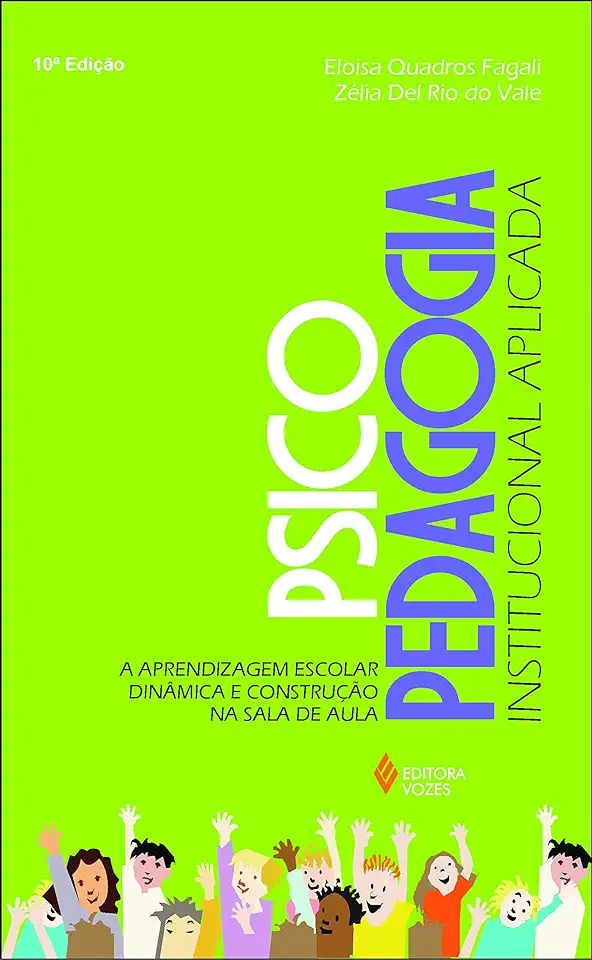
Applied Institutional Psychopedagogy - Eloisa Quadros Fagali and Zélia del Rio do Vale
Applied Institutional Psychopedagogy: A Comprehensive Guide to Enhancing Learning Environments
Introduction
In today's rapidly changing world, educational institutions face numerous challenges in providing effective and engaging learning experiences for their students. Applied Institutional Psychopedagogy offers a comprehensive and practical approach to addressing these challenges by integrating psychological and pedagogical principles into the design and implementation of educational programs. This book, authored by renowned experts Eloisa Quadros Fagali and Zélia del Rio do Vale, provides a wealth of knowledge and strategies to help educators create supportive and effective learning environments that cater to the diverse needs of learners.
Understanding Applied Institutional Psychopedagogy
Applied Institutional Psychopedagogy is a field of study that focuses on the application of psychological and pedagogical principles to improve educational practices within institutions. It recognizes that learning is not merely the acquisition of knowledge but a complex process influenced by various psychological, social, and environmental factors. By integrating these factors into educational design, Applied Institutional Psychopedagogy aims to enhance the learning experience, promote student success, and foster personal and professional growth.
Key Concepts and Principles
The book introduces readers to the fundamental concepts and principles of Applied Institutional Psychopedagogy, including:
Learning Theories: Explores various learning theories and their implications for educational practice, emphasizing the importance of understanding how learners process and retain information.
Motivation and Engagement: Discusses strategies to motivate learners and create engaging learning environments that foster curiosity, active participation, and a love for learning.
Individual Differences: Highlights the significance of recognizing and addressing individual differences among learners, including learning styles, cognitive abilities, and cultural backgrounds.
Assessment and Evaluation: Provides guidance on developing effective assessment and evaluation methods that measure learning outcomes accurately and provide meaningful feedback to learners.
Curriculum Design: Offers a systematic approach to curriculum design that aligns with learning objectives, considers learner needs, and incorporates diverse teaching methods.
Classroom Management: Explores techniques for creating a positive and conducive classroom environment that promotes respectful interactions, collaboration, and effective learning.
Practical Applications and Case Studies
Applied Institutional Psychopedagogy is not just a theoretical framework but a practical guide that offers real-world applications and case studies. The book presents numerous examples of how educational institutions have successfully implemented Applied Institutional Psychopedagogy principles to improve learning outcomes. These case studies cover a wide range of educational settings, from primary and secondary schools to higher education institutions.
Benefits of Applied Institutional Psychopedagogy
By adopting Applied Institutional Psychopedagogy, educational institutions can reap numerous benefits, including:
Enhanced Learning Outcomes: Improved student learning and academic achievement through effective teaching methods and supportive learning environments.
Increased Motivation and Engagement: Fostering a love for learning and motivating students to actively participate in their educational journey.
Personalized Learning: Tailoring educational programs to meet the individual needs and learning styles of diverse learners.
Positive School Climate: Creating a positive and inclusive school climate that promotes respectful interactions, collaboration, and a sense of belonging.
Professional Development: Empowering educators with the knowledge and skills to become effective facilitators of learning.
Conclusion
Applied Institutional Psychopedagogy is an essential resource for educators, administrators, and policymakers seeking to transform educational institutions into vibrant and effective learning environments. By integrating psychological and pedagogical principles, this approach empowers educators to create personalized learning experiences that cater to the diverse needs of learners, leading to improved learning outcomes, increased motivation, and a lifelong love for learning. Embrace the transformative power of Applied Institutional Psychopedagogy and unlock the full potential of your educational institution.
Enjoyed the summary? Discover all the details and take your reading to the next level — [click here to view the book on Amazon!]